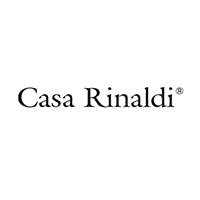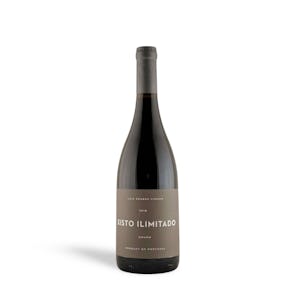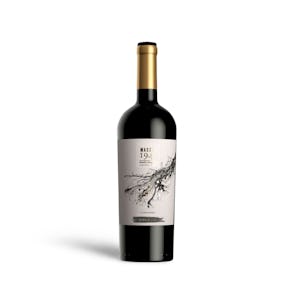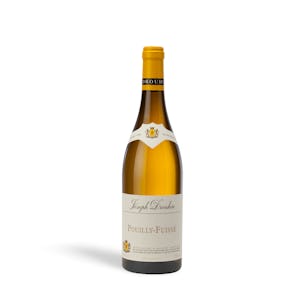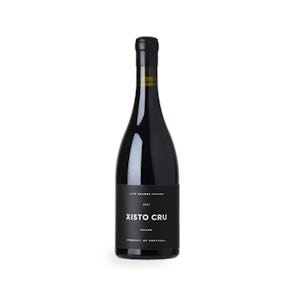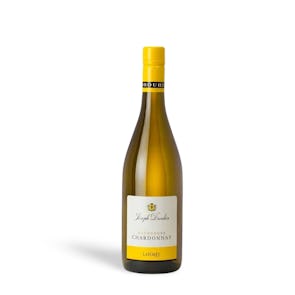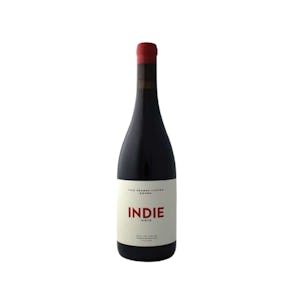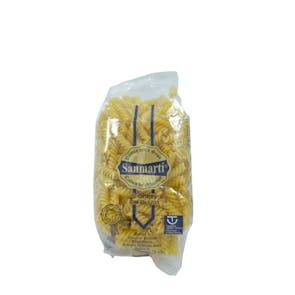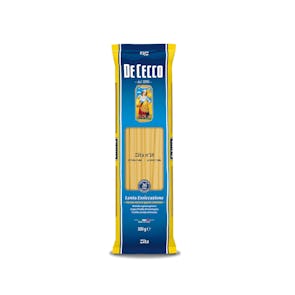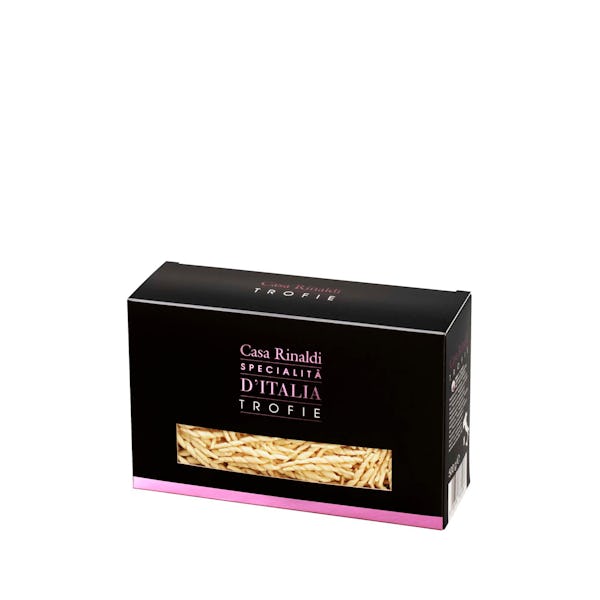
TASTING NOTES FROM THE CURATOR
Modern trofie pasta gets its popularity from Liguria, Northern Italy, but it actually originated in a village on the east coast of Genoa. It is now known as a staple in Ligurian cuisine.
Casa Rinaldi Trofie Pasta come in the traditional short, thin, twisted shapes. They could easily be a substitute for penne or fusilli, as they also have grooves that make it easier for sauces to cling.
PREPARATION AND PAIRINGS
Trofie pasta and pesto are a match made in pasta heaven! You can use our Genovese basil to make your own delicious pesto, too! Just toss in the basil, some garlic, some pine nuts, a generous sprinkling of Parmesan into a food processor. Add in some salt and Pecorino, then some extra virgin olive oil, and you have yourself a pesto sauce. Mix that in with freshly cooked Casa Rinaldi Trofie Pasta, and that makes for a relatively easy, but very delicious meal.
DO THE TWIST
There is some confusion as to the origin of trofile’s name. Some say it comes from “strufuggliâ,” a Ligurian verb that means, “to rub,” which refers to the method of preparing the pasta, i.e., by rolling or rubbing a small piece of dough onto a pastry board. Others say it comes from another Ligurian word— “strofia,” whose Ancient Greek roots mean “to twist,” which is, of course, also how the pasta is produced.
Storage Instructions
Store dry, uncooked pasta in a cool, dry pantry for up to one year. Preserve freshness by storing dry pasta in an air-tight box or container. Store plain (no sauce or other ingredients) cooked pasta in a container or plastic sealable bag in the refrigerator for up to five days and up to three months in the freezer.

